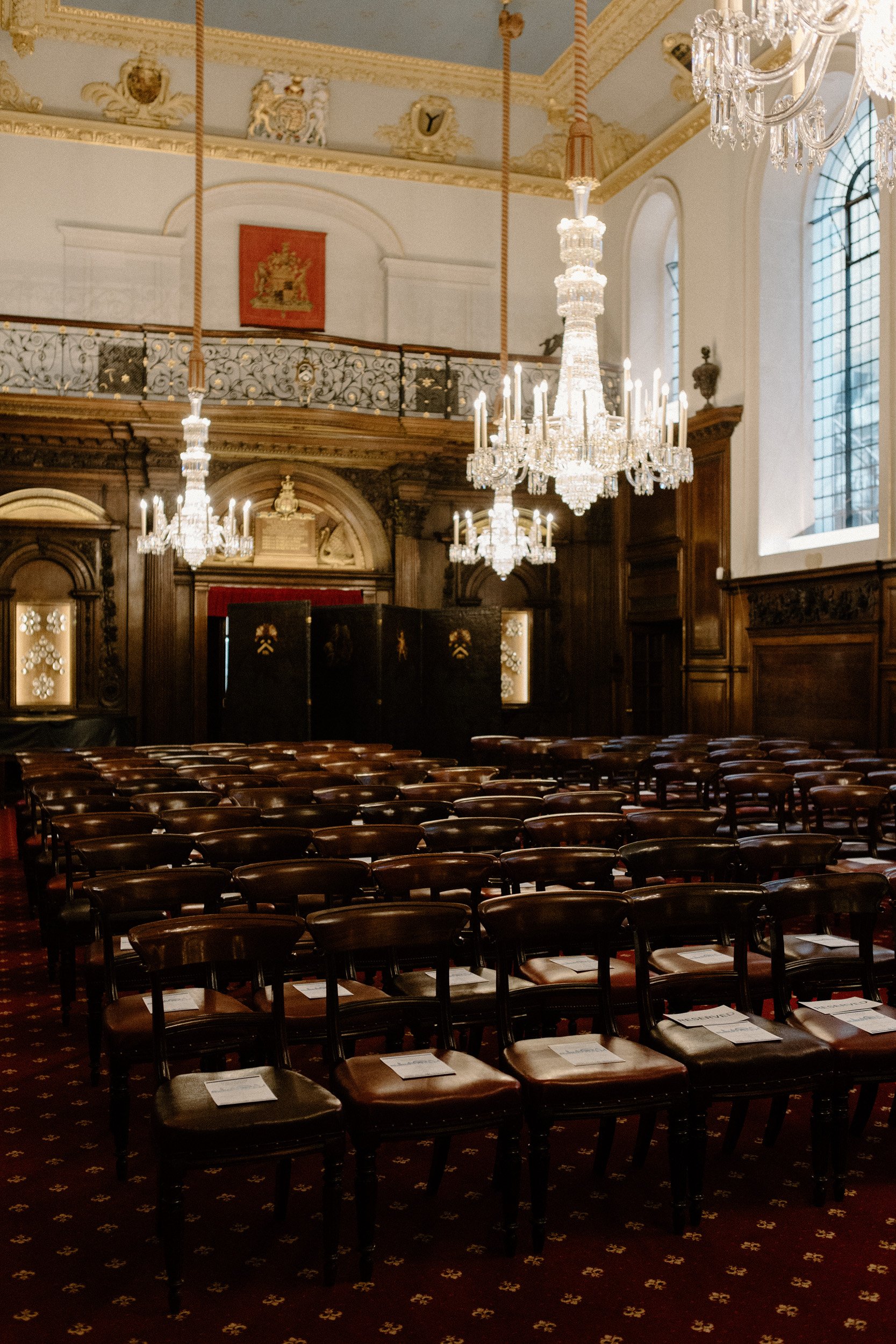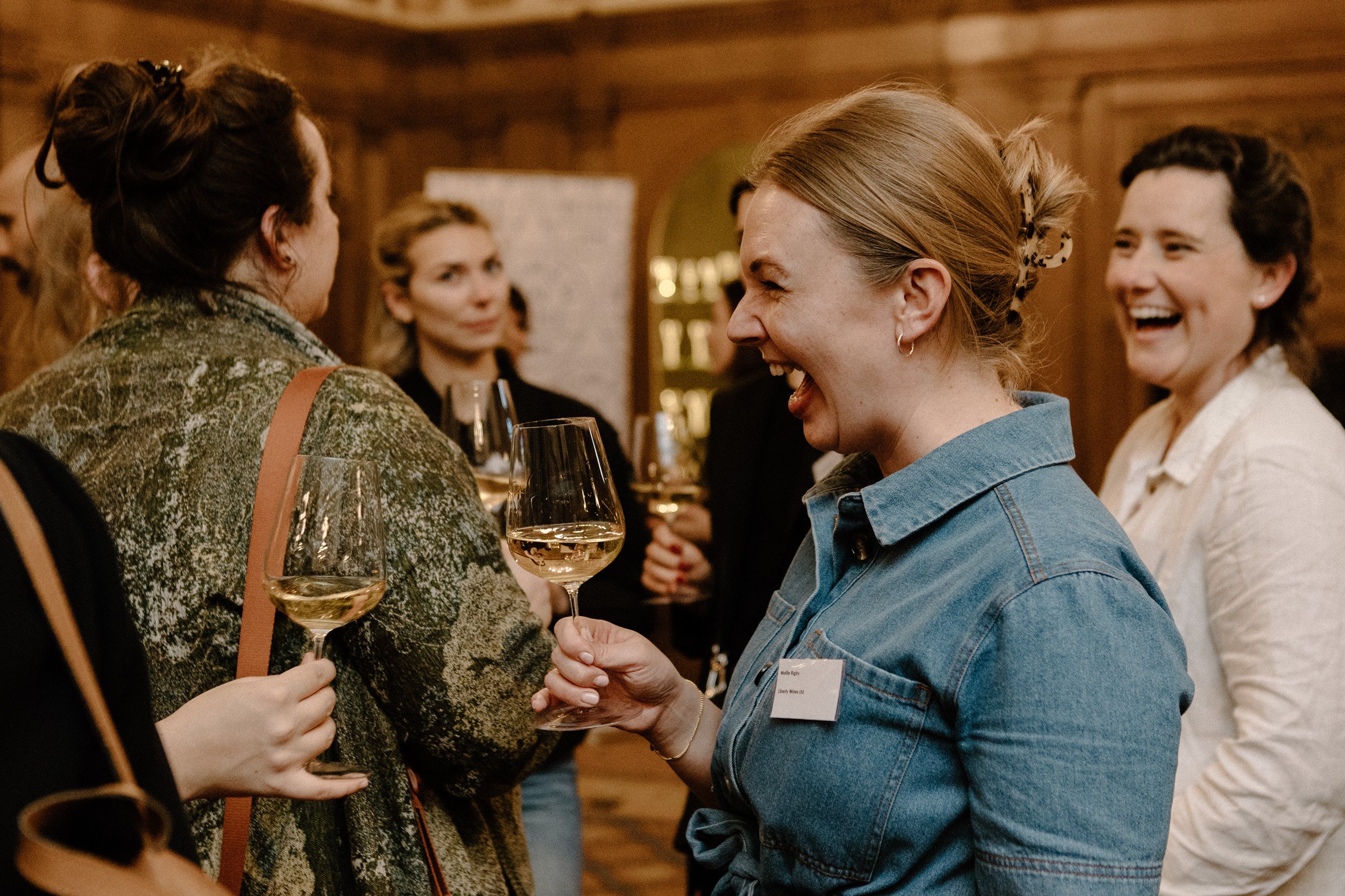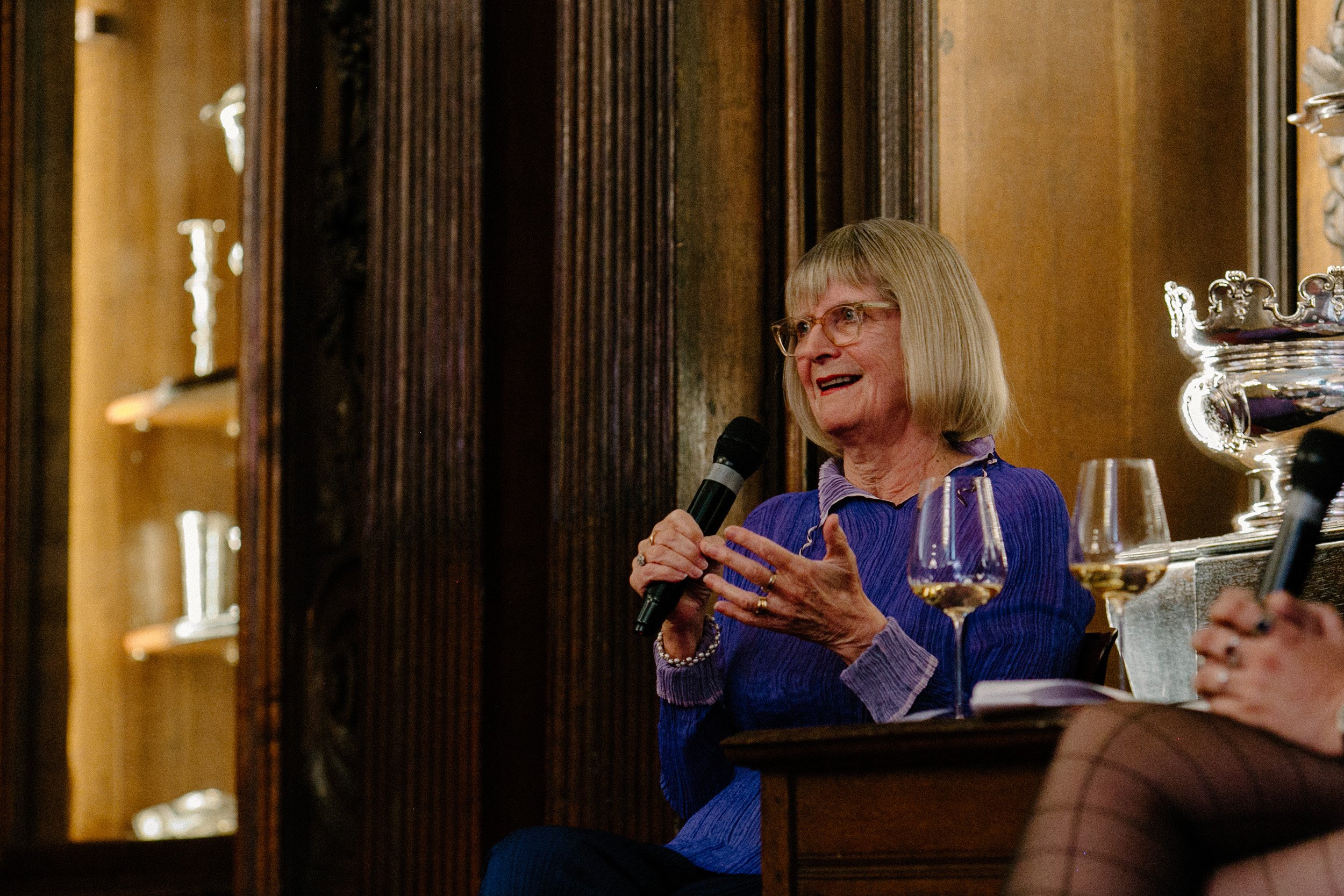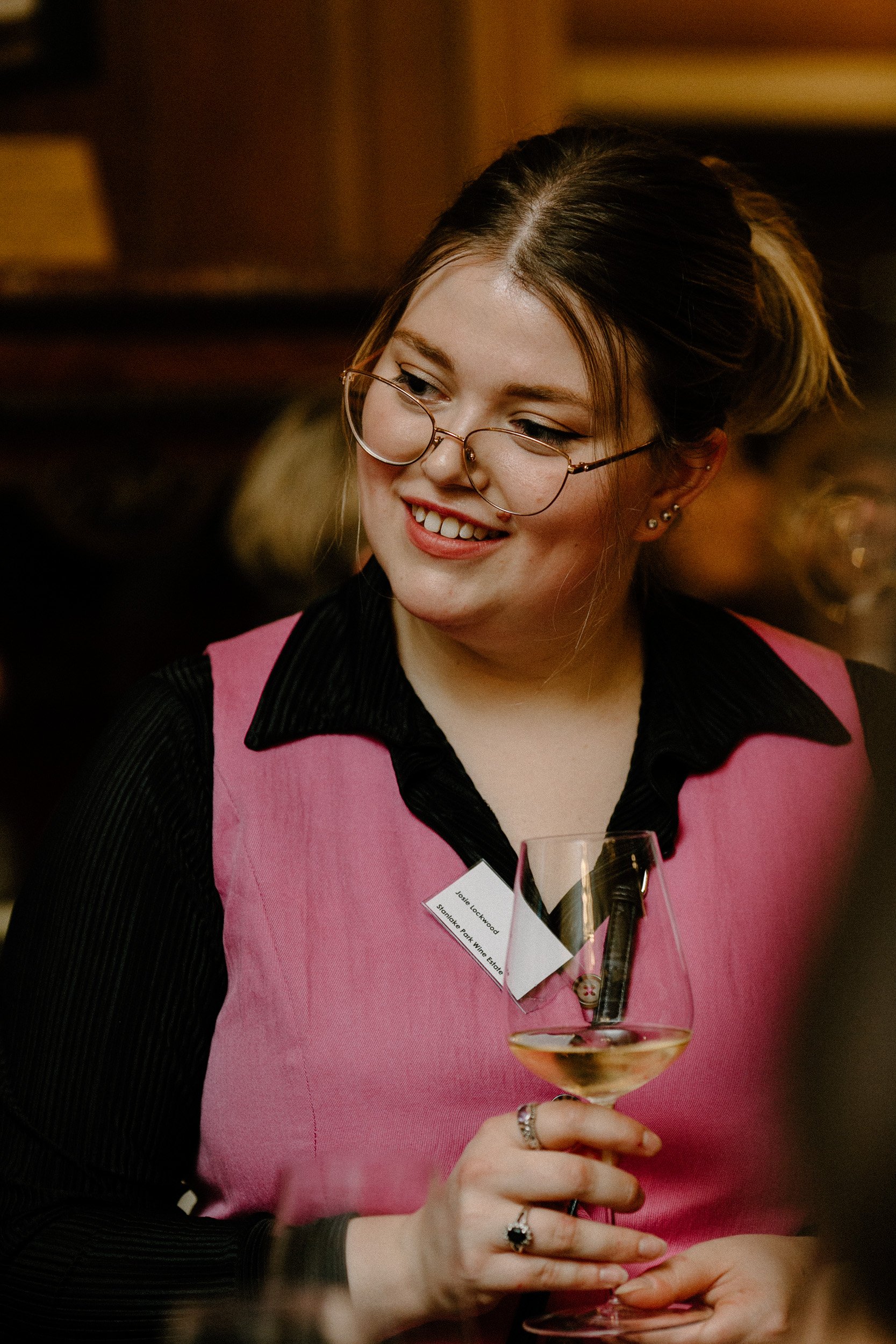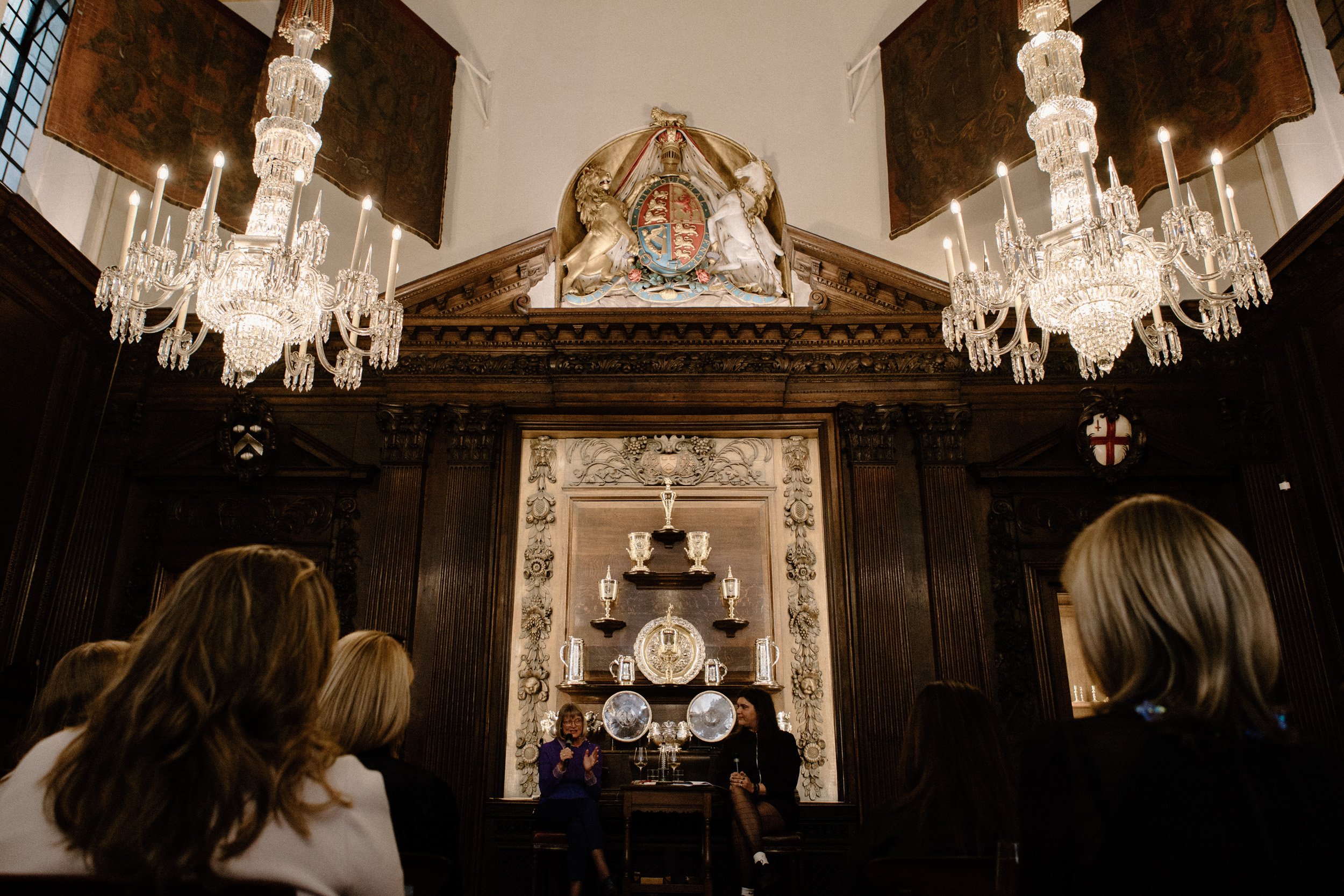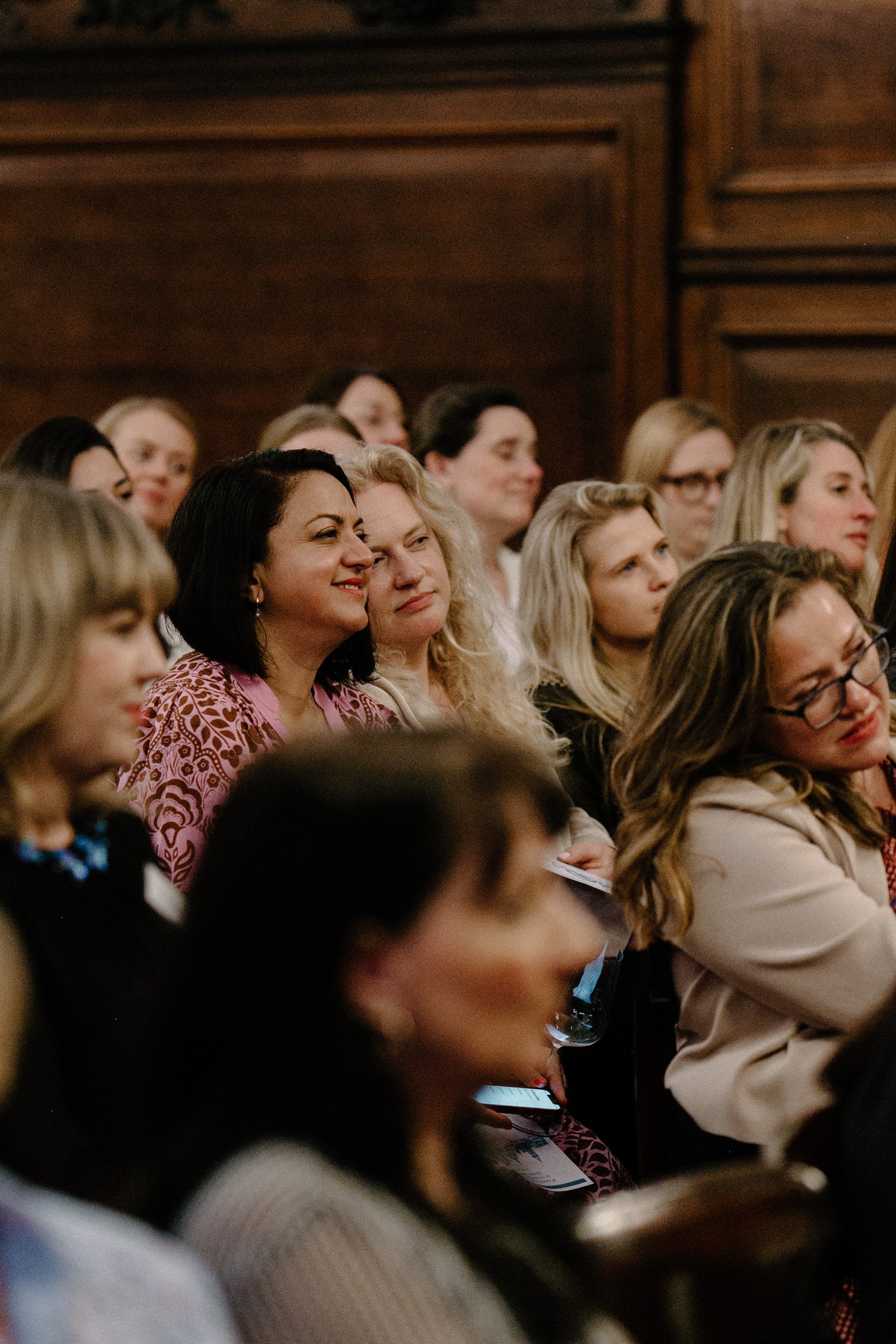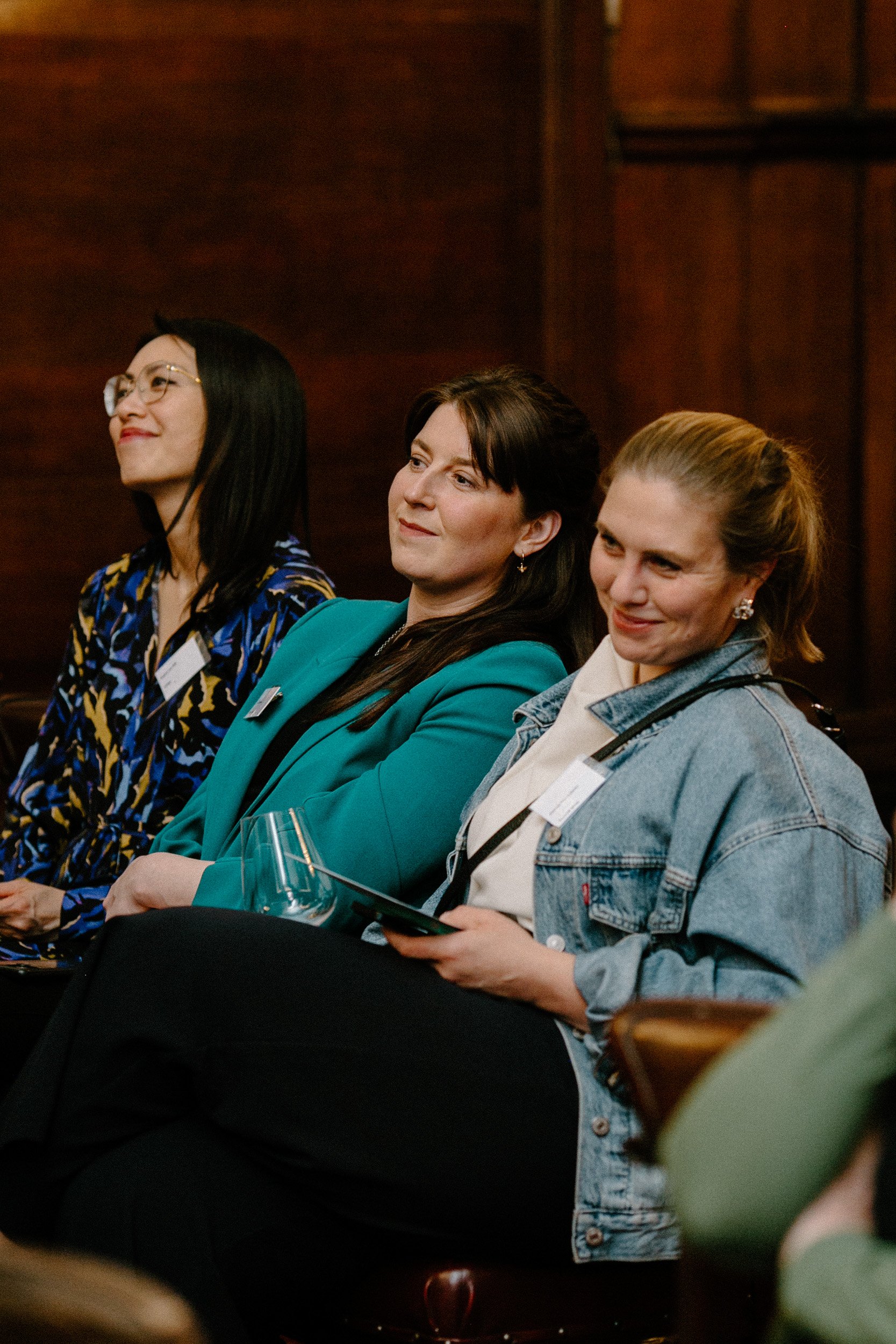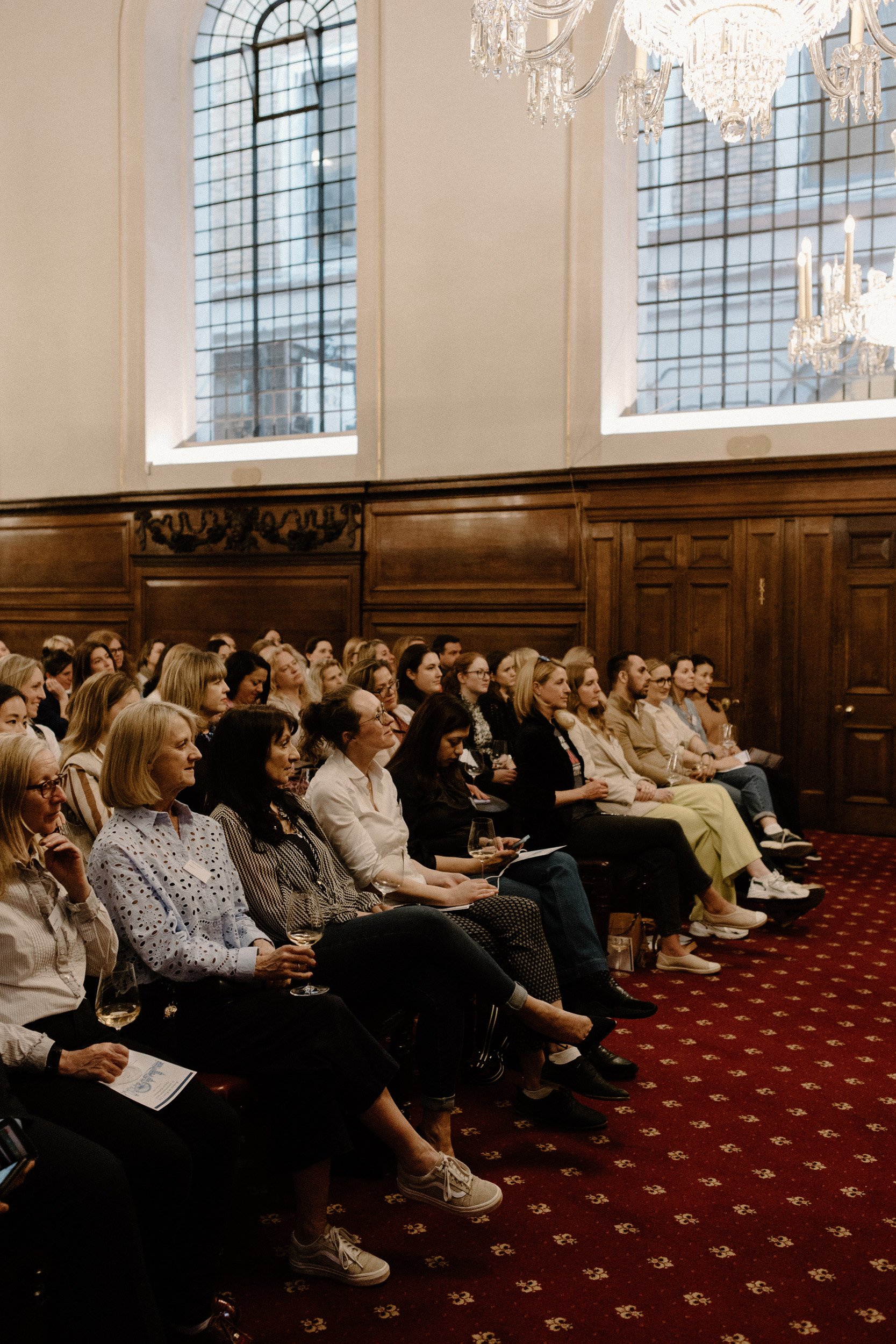The last day of April 2024 saw team Women in Wine LDN host our flagship event at Vintners’ Hall, the informal home of the wine industry since 1363. As our biggest annual get together, kindly supported for another year by the Vintners’ Trade Liaison Committee, we knew we needed a speaker who could do justice to the incredible space. And that we did!
When tickets for ‘An evening with Jancis Robinson’ sold out in under 2 minutes, we knew we needed to sort a cracking selection of wines for our thirsty community. Some fine fizz to start things off felt non-negotiable and was generously provided by Piper Heidsieck. Drinks for afterwards ranged from a nutty white Rioja, to an old vine Argentine white to a Douro double magnum. We also secured one of our favourite non alcs from our friends at REAL. Full details of the drinks served can be found below. All wines were served in Jancis’ own glassware, a collaboration with designer Richard Brendon, available here.
The conversation was hosted by Women in Wine LDN’s very own Anjali Douglas. Together the duo covered topics ranging from pursuing a career that centres around pleasure, the lack of diversity in the world of fine wine, the changing landscape of wine writing and the past, present and future of gender inequality in our industry. Attendees needed no encouragement to put questions to Jancis, which included managing writer's block, making the wine industry less London-centric, encouraging more young drinkers to engage with the category and of course, the obligatory ‘what’s your favourite wine?’ (answer: Chateau Cheval Blanc 1947 out of magnum).
After the talk, those that were brave enough joined the building’s General Manager Steve Marcham for a Vintners’ Hall ghost tour (yes, really), whilst the rest of us filed upstairs for a glass of wine, a munch on a canape and to continue the conversation. An unforgettable evening for us, thank you to those who joined us and all who made it possible.
Pictures below were captured by official Women in Wine LDN photographer Krishanthi Puwanarajah.
List of Wines:
Piper-Heidsieck Essentiel Extra Brut NV, Piper-Heidsieck and Liberty Wines
El Montañista Criollas Blancas 2021, Valle de Calingasta, Indigo Wine
Finca Nueva ‘Fermentado Barrica’ Blanco 2020, Rioja, Bancroft Wines
Niepoort ‘Drink Me’ Tinto 2017 (double magnum), Douro, Niepoort and Halo Wines
The REAL Drinks Co. Peony Blush, Dry Dragon and Royal Flush Sparkling Tea, Buckinghamshire, (Non Alc)
We provided one member of our community a paid opportunity to cover the event and hope this to be the first of many paid writing opportunities. You can read Katie Reading’s bio and piece on the event below.




